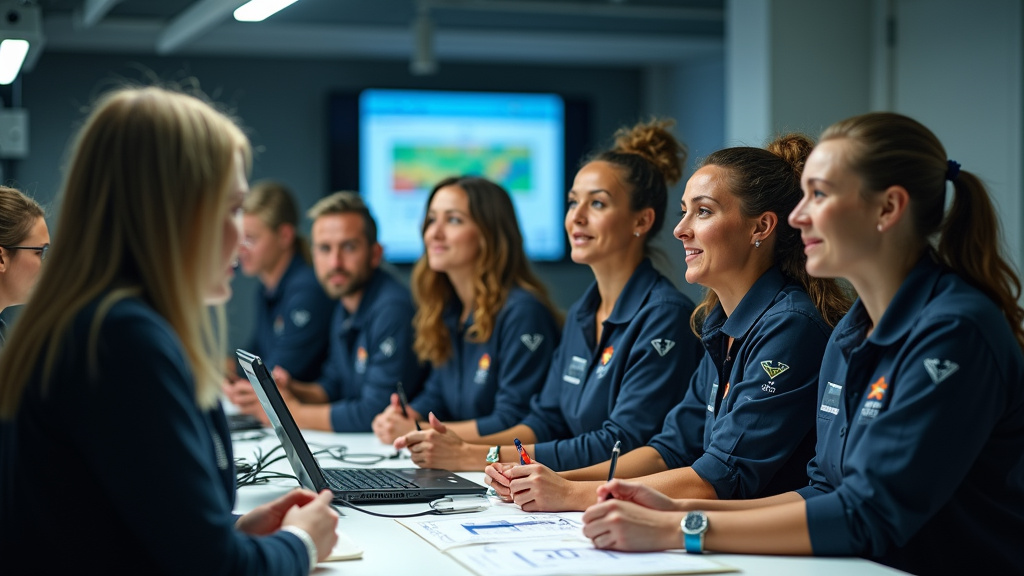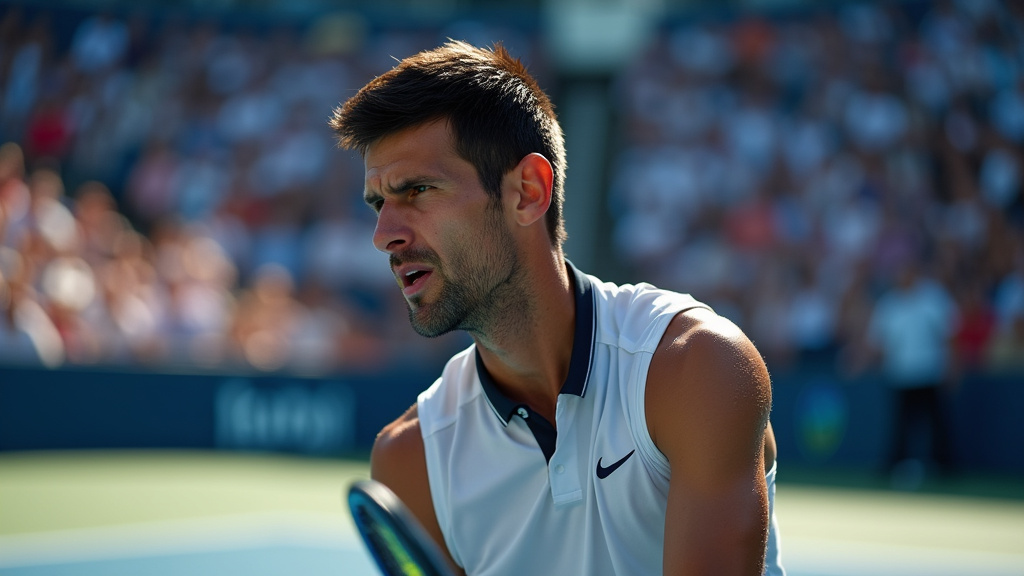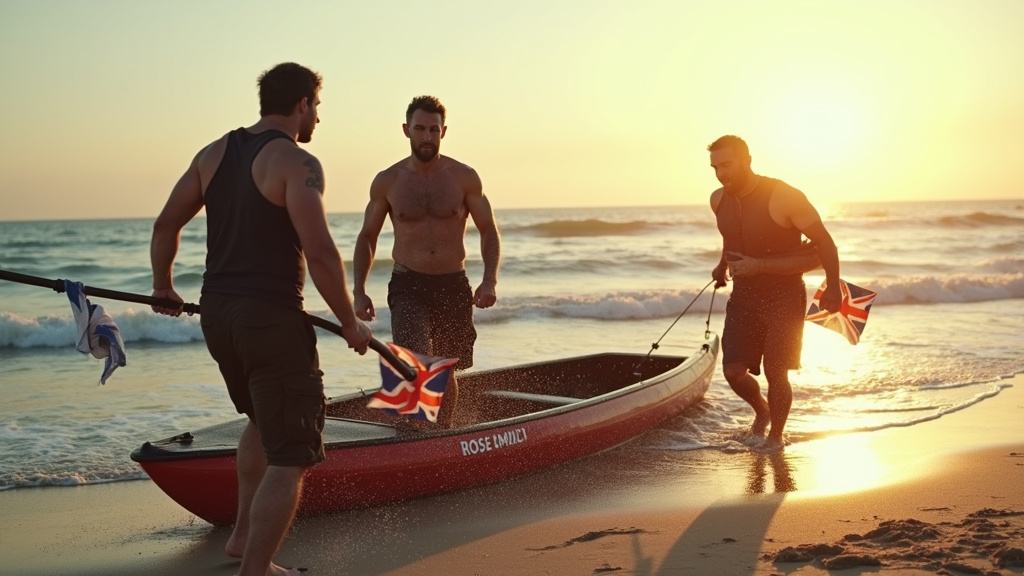The Rugby World Cup 2025 (RWC 2025) is leveraging its global platform not only to celebrate the sport but also to spearhead a significant initiative aimed at transforming the landscape of the sports industry workforce within the United Kingdom. In collaboration with UK Sport, the tournament has launched a comprehensive strategy and a powerful pledge to address a persistent gender gap, highlighting a critical need for greater inclusion and opportunity for women in sports careers.
The Stark Reality: A Gender Gap in Sports Careers
New research commissioned by RWC 2025, as part of its ‘Where We Belong’ campaign, has unveiled a concerning disparity in career aspirations within the sports sector. The findings indicate that only 48% of women would consider a role in sports, a stark contrast to the 72% of men who would. This significant gap is compounded by differing perceptions of the industry; fewer women (49%) feel comfortable being themselves in a sports workplace compared to men (72%), and a notable gender divide exists in confidence regarding having the right qualifications (44% of women versus 63% of men). Furthermore, men are more likely to have participated in initiatives designed to open doors to sports industry careers, suggesting issues with access and visibility for women. Despite widespread interest in sports careers, with 59% of adults finding them appealing, many perceive it as difficult to build a career in the sector. This sentiment is particularly strong for women, who often find roles in other industries like healthcare or education more desirable than those in sports. Broader industry reports echo these concerns, with findings indicating that women are more likely to experience gender discrimination and unfair pay, and less than 1% of women working in sport feel the industry is gender equal.
RWC 2025 and UK Sport’s Pledge for Change
Recognizing these barriers, UK Sport and the RWC 2025 have united to champion greater inclusion through a collaborative pledge. This initiative calls on leaders across the sports industry to commit to tangible actions, including strengthening workforce and recruitment practices, and actively promoting open access to opportunities for women and underrepresented groups. The RWC 2025 itself is actively creating pathways, offering internships and volunteering opportunities, providing inclusion training for staff, and ensuring that social value is a key consideration in all tender processes. Notably, the tournament’s senior leadership team and its board are majority female, setting a strong precedent.
Making Sports Roles More Appealing
The RWC 2025 is implementing concrete measures to demystify careers in sports and make them more accessible. Beyond internships and general inclusion training, the tournament has provided diverse match-day roles for women, including positions as match officials, commissioners, broadcast commentators, photographers, security staff, DJs, and even an all-female groundskeeper crew for the final. A groundbreaking partnership with Getty Images has also launched a photography development program, where 10 out of the 14 participants are women, aiming to close the gender gap in sports media and behind-the-scenes creative roles. These efforts are part of the broader ‘Where We Belong’ campaign, which seeks to ensure that rugby is a sport where everyone feels they have a place.
Building a Diverse and Inclusive Industry
The drive for a more inclusive sports industry is not just about fairness; it’s about enhancing the sector’s overall effectiveness and reach. A diverse workforce brings broader perspectives, fosters innovation, and is crucial for connecting with wider and more varied audiences. As women’s sport experiences record viewership and engagement across the United Kingdom, ensuring the industry’s workforce reflects this growth is paramount. Efforts like Sport England’s ‘This Girl Can’ campaign have long highlighted the need to get more women and girls active, but the RWC 2025 initiative focuses on the professional and operational side of sports, aiming to attract talent into these careers.
Addressing Systemic Barriers
To truly dismantle the barriers faced by underrepresented groups, the RWC 2025 and its partners are advocating for systemic changes. Recommendations include the establishment of structured and paid pathways into sport, making careers accessible without requiring prior industry experience. Transparency in career progression, with clear roadmaps, and accessible recruitment processes that widely advertise roles are also emphasized. Crucially, the initiative calls for sports organizations in the UK to set and report against measurable diversity targets, ensuring accountability and driving genuine progress.
A Wider Movement for Gender Equity in Sports
The RWC 2025’s commitment aligns with a growing trend across the sports sector in the United Kingdom, supported by government investment and charitable organizations like Women in Sport. This push for gender equity off the field is as critical as the performances on it, aiming to create a sustainable and thriving sports industry for generations to come. The ongoing efforts underscore that while women’s sport is trending and gaining unprecedented visibility, the work to ensure equal opportunities within its industry is a vital, continuous pursuit.
Conclusion
The Rugby World Cup 2025 is setting a new benchmark, demonstrating how major sporting events can serve as powerful catalysts for social change. By actively addressing the gender disparities within the sports industry workforce and championing inclusivity, the tournament is not only enhancing its own legacy but is also contributing to a more equitable and dynamic future for sports in the United Kingdom and beyond.





